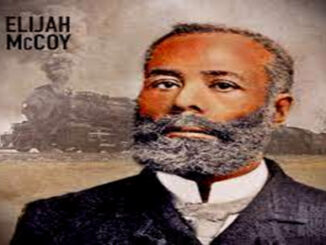
Lost Black History
By Don Valentine
Elmore “Buddy” Bolling, at the young age of 39, was killed with a barrage of shotgun blasts and pistol shots from White assailants. The Montgomery Advertiser described how brazen it was. “The shooters didn’t even cover their faces; they didn’t need to. Everyone knew who had done it and why. ‘He was too successful to be a Negro,’ someone who knew Bolling told a newspaper at the time.”
Buddy’s crime was participating in America’s promise of liberty. In the Declaration of Independence the iconic promise is made, “We hold these truths to be self-evident, that all men are created equal, that they are endowed by their Creator with certain unalienable Rights, that among these are Life, Liberty and the pursuit of Happiness.”
He became a small business genius in Lowndesboro, Ala. In 1931, he started his livestock business in Lowndes County, and used the proceeds to buy a Model T Ford which he converted into a truck. Soon, he was making a living not only by raising livestock but also by hauling bone, kindling, scrap iron and tin from rural Lowndes County to Montgomery. As the business flourished, Buddy bought a ton and a half truck, adapted it to carry passengers, and began transporting people to town to shop. Soon his reputation for reliability spread and Whites hired Buddy to haul big jobs like transporting livestock to the stockyard. The profits allowed him to buy a tractor-trailer truck. That purchase let him convert his original short truck into a “Milk truck.”
In another shrewd gamble, he used the “Milk truck” to create a needed income stream for sharecroppers when cotton was out of season. Buddy provided cows that the sharecroppers milked. On weekdays his drivers collected the milk from the sharecroppers and transported it for sale to the dairy.
The bollinginitiative.org annotated, “He employed 40 Black farm hands who grew cotton, corn, sugar cane, peanuts …” Buddy had a county wide reputation for generosity and philanthropy. According to the history archive the bollinginitiative.org “the only way Elmore would not help you, is that you didn’t ask.” When people did not have money for the fare, Buddy would let them ride his passenger truck for free. When someone could not repay a loan, he generously canceled the debt.
Because of his generosity, work ethic and reliability he became known throughout the county. The White community had divergent views about him. As his businesses thrived, some White men were upset that White employers favored Buddy over them for hauling jobs. In addition they were disgruntled that this Negro was prosperous enough to lease land and build a general store. In retaliation, they conspired to murder him. On December 4, 1947 his family, while working at his store, heard shots and ran to find Buddy dead in a ditch. That was Alabama’s view of “Life, Liberty and the pursuit of Happiness” for Negroes in the Jim Crow era.





Be the first to comment